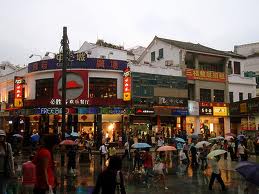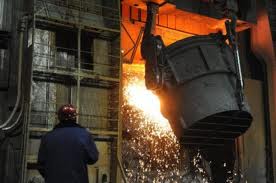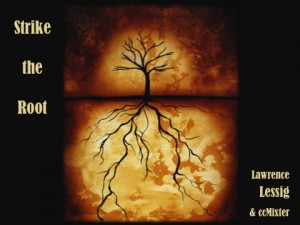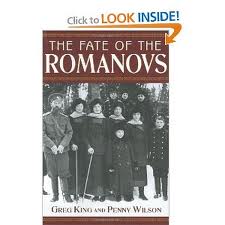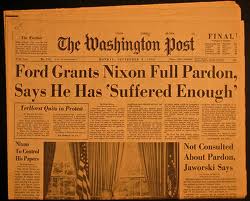The Steel Factory
Monday, January 30th, 2012Deng Xiaoping and the Transformation of China, Ezra F. Vogel, 2011
A thorough (800 pages) account of the life and impact of Deng on the modernization of China. Deng’s history including his years in France, where he first met Zhou Enlai and Ho Chi Min, and Russia, his roles in the war against Japan and the Civil War against the Guomindang and the early years of the Communist rule of China up to the Cultural Revolution are covered in only 45 pages. The tale really begins in 1967, when Deng, age 63, is placed under house arrest. In 1969 with the plane crash that killed Lin Biao and the first Soviet incursions into Outer Mongolia, Mao has Deng sent to Jiangi province where he was given light factory work in an army controlled facility. He would not be recalled to Beijing until 1974, when Zhou Enlai had again fallen from Mao’s grace and was dying of cancer and Mao himself was fast failing from Lou Gerhig’s disease. After some success in restoring order to the railroads and key provinces, Deng again is attacked by Mao starting in 1975. Zhou Enlai dies in early 1976 and Mao attempts a quiet ceremony only to see Beijing and Tiananmen overrun with spontaneous mourners. On April 5 1976 a massive demonstration is held in Tiananmen Square for Zhou and Deng. Jiang Qing (Mao’s separated wife) and the Gang of Four (so named by Mao) set out to quell the demonstration and continue the criticism of Deng. Hua Guofeng is named Mao’s successor and Mao dies on September 9, 1976. Hua immediately moves to arrest the Gang of Four who are tried and executed for their role in the Cultural Revolution and the purge following the April 5 demonstration. Deng immediately consolidates his power in the military and foreign affairs and quietly sets out to remove Hua. Deng never assumes the titles of leadership and never creates a cult of personality around himself.
The “Four Modernizations” to develop agriculture, industry, national defense, science and technology was formalized by Zhou Enlai in 1963 and underpinned the policies of Deng after 1977. Mao had believed in the need for continuous revolution which resulted in the chaos and tragedies that were the Great Leap Forward and the Cultural Revolution. Mao engaged in perpetual war against the landlords and capitalists. But Mao also attacked the intellectuals and educated Chinese and Deng led in the purges of the Hundred Flowers campaign starting in 1957. By 1977, Deng had come to realize that China would need an educated class to promote education, research, and modernization. Chinese universities had been largely destroyed during the Cultural Revolution, were occupied by the army, and were operating at a secondary school level. Deng moved to normalize relations with the US with a primary goal to send large numbers of Chinese students to US universities. He reformed the Universities to qualify students for admission to foreign Universities. Deng explained that working with your mind was the same as working with your hands and all work should be honored. Asked if Deng wasn’t worried that the students would stay abroad, Deng responded that it didn’t matter because they were still Chinese and would help China wherever they chose to live and work. As it turned out sizable numbers of students did return to China where they played key roles in China’s transformation.
Deng was famous for his memorable quotes “It doesn’t matter if a cat is black or white, so long as it catches mice.” and “When you open the door, flies will get in.” to explain his openness to economic and market experimentation and willingness to tolerate some corruption if economic progress results. The usual focus is on China’s development of the Special Economic Zones (SEZs) led by Shenzhen near Hong Kong which grew from a sleepy village of 20,000 to a metropolis of several million with tall modern buildings and all infrastructure needed to support modern manufacturing. But equally important to the transformation of China were allowing certain regions to move from collective farming to household farming resulting in huge increases in food production and the promotion of small enterprises at the collective and household level to produce and market products wanted and needed by the people Household farming and small scale enterprise came to produce half of China’s GNP.
Particularly interesting were Vogel’s reasons why China developed so differently from the Soviet Union and Eastern Europe. He points out the China had a long history as a culturally unified area dominated by the Han people. The entire country had a single written language and Mandarin was long the official government spoken language. Mao simplified the written language and made sure all Chinese were taught Mandarin and simplified Chinese writing. Second, China has a long coastline and many deep water seaports unlike the other Communist countries. This advantage makes it far easier to import technology and export products. Transportation in the interior of China was limited but the coastal cities were not held back by this limitation. Third, China had the examples of Singapore, Hong Kong, Taiwan, South Korea, (the dragons) and Japan to study and emulate. Finally, many millions of Chinese were living overseas throughout the developed world. China found these overseas Chinese very ready to assist in the modernization process. Deng was advised by Singapore’s Lee Kuan Yew and Hong Kong shipping magnate Y K Pao and several Chinese American Nobel laureates.
The largest foreign investor in China was Japan. Vogel points out that the eye opening trips made by Chinese leaders to Japan and Western countries in the late 1970s resembled the Iwakura Mission of 1871 in Meiji Japan. Like Japan, these trips served to show the Chinese how far behind they were. This was brought home most tellingly when Deng visited an automated continuous production steel plant in Japan whose production was almost the equivalent of all China’s antique plants combined. With Japan’s technical, financial, and management assistance, China today produces more steel than the US and Japan combined. Deng was equally interested in how Japan had converted from a war production economy during the war to a peacetime, consumer economy so quickly after the war ended.
Deng began his rule with two bold moves. He authorized a lightning strike military invasion of Vietnam to demonstrate that China could threaten Hanoi anytime it chose. Troops took control of all northern county capitals then withdrew to China in only 28 days. Deng calculated that this surprise move would stall Vietnam’s aggressions in Laos and Cambodia and to warn the Soviets to stay away from the southern region, would secure China for at least a decade, giving him time and space to implement his economic reforms. Second, Deng moved immediately to normalize relations with the US so that the Soviets would be detained from aggression, Chinese students could begin study in US universities to close the training gap, and the US could be encouraged to invest in China. Central in Deng’s mind was US education of China’s best students.
Vogel spends a lot of time discussing the Tiananmen Square student uprising of 1989. Deng started his leadership by normalizing relations with the US and wanted to bookmark his regime with normalized relations with the Soviet Union. Gorbachev visited Beijing in late May 1989 to finalize the normalization agreement. Hu Yaobang, as General Secretary was a reformer promoting freedom and democracy much beloved by Chinese university students. Hu was removed from office and criticized for his failure to deal with student demonstrations in 1986. When he died in 1989, the students came to Tiananmen Square to honor Hu much like the earlier mourning demonstrations in honor of Zhou. Hu replaced Zhou in the hearts of the students. Deng desperately wanted to clear the square by the time Gorbachev arrived. He wrote a tough editorial which only strengthened the resolve of the demonstrators. Days before Gorbachev and massive worldwide media arrived in Beijing the students started a hunger strike. Western press which came to cover the Gorbachev visit quickly turned their focus to the demonstrators. Deng tried to clear the square with unarmed soldiers but failed. He waited for Gorbachev and the Western press to leave then sent in heavily armed troops with orders to clear the square at any cost. Estimates of student deaths vary from 400 to several thousand. Zhao Ziyang was removed from power for disagreeing with Deng’s handling of the demonstration.
Factions remained under Deng with the reformers on the right and the conservatives led by Chen Yun on the left. The early success of creating a market economy in China resulted in double digit GNP growth for a number of years in succession. By the late 1980’s the massive growth led to inflation anticipated to be 30% in 1989. Inflation was particularly hard on the mass of Chinese living with fixed incomes. Chen and the conservatives blamed the Tiananmen demonstrations on this inflation and moved too aggressively to contain it bringing the Chinese economy to a hard landing with growth under 4%. The conservatives remained in control until 1992 until Deng, then 87 years old initiated one final movement during his winter vacation in the south. During visits in Shenzhen, Zhuhai, Guangzhou, and Shanghai, Deng spoke out colorfully and strongly for liberalization and expansion of his socialist market economy. Hong Kong media quickly picked up on Deng’s tour and began broadcasting coverage of his talked via television which was now widely available in the regions near Hong Kong. Popular support for his views exploded and his hand picked successor Jiang Zemin quickly changed sides from the Chen led conservatives to the Deng led reformers. In his last movement, Deng thus set the stage for the resumption of the fast growth that continues to this day. From this time forward, inflation fighting measure assured that the economy would have a soft landing and rapid growth continue.
the Steel Factory melts the Iron Lady 
The British handover of Hong Kong took place in 1997 just months after Deng’s death. Preparations for the handover occupied a central part of Deng’s attention during his rule. He knew that Hong Kong would be invaluable as a financial and trade center as it had since the revolution in 1949. Deng consistency pressed the one country – two systems approach to dealing with Hong Kong. He continued to develop personal relationships with key Hong Kong businessmen and made sure that the right people from China were appointed to Hong Kong and that Hong Kong leaders were developed to be able to take over when the British administrators left. One of Vogel’s better stories is the visit of Margaret Thatcher (the Iron Lady) to Deng (the Steel Factory) in September 1982. Thatcher was riding high after her victory in the Falken Islands and intended to tell Deng that Britain had decided to keep administering Hong Kong indefinitely. Deng changed her mind for once and all. China would administer Hong Kong and warned Britain not to attempt to drain assets from Hong Kong prior to the handover.
China’s efforts to reassure the residents of Hong Kong received a big setback after the Tiananmen Square repressions and individual residents continued to leave Hong Kong for Canada and other destinations taking as much wealth with them as possible. For all the drama, the handover went smoothly and Hong Kong continues its role today as financial center and trading center for China and Hong Kong’s residents continue to prosper.
What about Shanghai, China’s largest manufacturing center when Deng took over? Shanghai was initially excluded from the SEZ creations because of its size and complexity and because Deng was worried that the SEZs would be seen as a recreation of the colonial past with the foreign concessions. Shanghai was allowed to modernize later and Deng’s successor Jiang Zemin made his reputation in Shanghai.
It is difficult for those in China an abroad who became adults after Deng stepped down to realize the enormity of the problems Deng faced as he began this journey; a country closed to fundamentally new ways of thinking; deep rifts between those who had been attacked during the Cultural Revolution and their attackers; proud military leaders who were resistant to downsizing and budget reductions; public animosity toward imperialists and foreign capitalists; an entrenched conservative socialist structure in both the countryside and the cities; a reluctance by urban residence to accept over 200 million migrants from the countryside; and dissension as some people continued to live in poverty while others became rich…It is doubtful that anyone else had the combination of authority, depth and breadth of experience, strategic sense, assurance, personal relationships, and political judgement needed to manage China’s transformation with comparable success.
Another reason to study this work is for the insights it gives into the inner workings of the political system, the campaigns, the training and promotion of leaders, the complex intrigues between ruling cliques. Deng watched events unfold as labor unions struck in Poland, Nicolai Ceausescu was overthrown in Romania, and as Gorbachev set out to reform the communist party only to see the collapse of the entire Soviet system. Deng was determined to keep a strong single communist party with adherence to the thought of Lenin, Marx, and Mao (with Deng as the high priest of interpretation). At the same time he believed that leaders should experiment, make mistakes, admit their mistakes, correct their mistakes, and experiment again. He carefully avoided the Kruschev mistake of critizing Stalin, finding quotes from Mao that he was correct 70% of time, in other words Mao made mistakes such as the Great Leap Forward and the Cultural Revolution, for which Mao accepted responsibility (he did?), corrected, and moved on to new experiments.
Deng believed that training leaders, giving them freedom to experiment, judging the results (did the cat catch mice? were the flies tolerable?), correcting mistakes, including changing leaders if necessary is the key role of the communist party leadership. Deng believed that reform and economic transformation could only be accomplished by the selection of the proper leadership at the national and regional levels. Deng and his cohort were the second and last generation to have experienced the wars as leaders. Deng was determined to force his cohort of old revolutionaries to retire with him and to pass the reigns to a much younger generation of leaders who grew up in very different conditions. We have now seem several and are about to see the next changing of the guard as the next generation assumes power in a peaceful transfer. All this is the rightful legacy of Deng.

